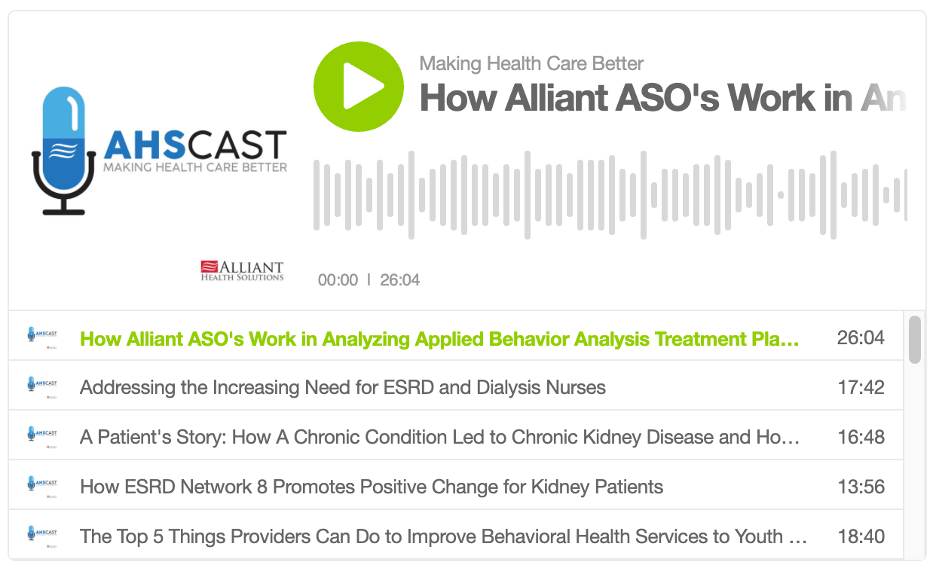|
|
|
|
Please share this email with friends or colleagues using these links:           
(Please do not forward the email as it may impact your subscription settings)
|
|
A monthly newsletter highlighting events and resources for Nursing Homes & Community Coalitions
In This Issue:
|

Biden-Harris Administration Will Cover Free Over-the-Counter COVID-19 Tests Through Medicare
As part of the Biden-Harris Administration’s ongoing efforts to expand Americans’ access to free testing, people in Original Medicare or Medicare Advantage will be able to get over-the-counter COVID-19 tests at no cost starting in early spring. Under the new initiative, Medicare beneficiaries can access up to eight over-the-counter COVID-19 tests per month for free. Until this program is rolled out, people with Medicare can access free tests through a several channels established by the Biden-Harris Administration. Learn More
|
|
|
|
Our team is collecting and curating the essential trainings, events, resources and vaccine updates about COVID-19 and influenza on our website so you can visit one page to find the information you need. We've also outlined the essentials below.
View All COVID-19 News & Resources
Training & Resources
- COVID-19 Vaccine Booster Flyer–Why Should I Get Boosted flyer. Post this booster flyer in your facility to encourage staff and residents to get boosted. Download Flyer
- Mask Up, Sleeves Up flyer. Post this flyer to encourage mask up and sleeves up. Download Flyer
- Putting COVID-19 Numbers and Vaccinations into Context. This presentation and video help explain the risks of COVID-19 relative to other events such as lightning strikes, tornadoes, traffic fatalities, etc. and illustrate the impact that COVID-19 vaccinations have on reducing risks. Get the Presentation and Videos
- An Introduction to Motivational Interviewing for Health Care Professionals. As a trusted source of health information and healing, your approach to a conversation with patients and families who are hesitant about receiving COVID-19 vaccines can influence their willingness to consider vaccination. View Resource
Updated Guidance for Use of COVID-19 Vaccines Currently Approved or Authorized in the United States
- Updated guidance for moderately or severely immunocompromised people
- Updated guidance following receipt of monoclonal antibodies
- Updated contraindication and precaution
Guidance for Ending Isolation and Precautions for People With COVID-19
Updated guidance reflects new recommendations for isolation for people with COVID-19. View Guidance
CDC: Boosted Nursing Home Residents 10 Times Less Likely To Be Infected With COVID-19
According to new figures released by the Centers for Disease Control and Prevention (CDC), nursing home residents who have received booster doses of COVID-19 vaccines are 10 times less likely to contract the disease. Read the Article
Your Guide to Masks
To protect yourself and others from COVID-19, the CDC continues to recommend that you wear the most protective mask you can, that fits well and that you wear it consistently. View the Resource
COVID-19 Booster Dose Messaging and Outreach Tools
To help everyone ages 12 and older get a COVID-19 booster dose, the Public Health Communication Collaborative created communication resources—including infographics, talking points and sample social media graphics—regarding COVID-19 vaccines. Access the Toolkit
Updated Strategies to Mitigate Health Care Personnel Staffing
Due to concerns about increased transmissibility of the SARS-CoV-2 omicron variant, the CDC guidance was updated to enhance protection for health care personnel (HCP), patients and visitors, and to address concerns about potential impacts on the health care system given a surge of SARS-CoV-2 infections. View Strategies
Vaccine Updates
Pneumococcal Vaccine Recommendations for Older Adults
Older adults are at risk of serious illness and death from pneumococcal disease. In the United States, there are two kinds of vaccines that help prevent pneumococcal disease:
- Pneumococcal conjugate vaccines (PCV13, PCV15, and PCV20)
- Pneumococcal polysaccharide vaccine (PPSV23)
The CDC recommends pneumococcal vaccination for all adults 65 years or older. This resource provides a detailed summary of who and when to vaccinate and an overview of the current recommendations. View Resource
|
|
|
Leadership Lessons
Words of advice from leaders on the front lines.
This month’s leadership lesson is from Tanya Vadala, PharmD, the Behavioral Health Aim Lead for Alliant Health Solutions.
The New Normal: Post-Pandemic Health Care
“Alone we can do so little; together we can do so much." — Helen Keller
Positivity and planning are our best resources in finding our way beyond the pandemic. The same strategies that helped us not only survive but thrive during the pandemic can be carried into the post-pandemic era. The world will never be the same again, so why should we expect our practices to be as well? Leadership should take this opportunity to actively seek feedback from their health care workers on how to make the “new normal” far superior to the past.
Here are some suggested questions leadership can ask their health care workers:
- What changes made during the pandemic should be continued?
- How can leadership best support you and your work?
- What additional resources or training do you need?
- What types of resources are most helpful (handouts, webinars, short videos, etc.)?
- What topics are you interested in learning more about?
As a leader in health care quality, Alliant is here to assist you with forging into the “new normal.” We have resources and contacts that can aid your transition to the future of health care. Whether you need information about transitions of care, adverse drug events, or chronic condition management, we have you covered. Find even more at https://quality.allianthealth.org/.
Read on our Website
Best Practice Corner
Each month Alliant Health Solutions collects exemplar practices from organizations across the seven-state region. Thank you for your leadership, creativity and perseverance.
Louisiana Developing Process To Combat Nursing Staff Shortages
Louisiana is developing a new process to combat staff shortages and streamline how LPN graduates can obtain a temporary permit, which allows them to be employed before passing the NCLEX-PN. The permit will be valid for eight weeks or until the graduate successfully passes the NCLEX-PN, whichever occurs first. Until this process is finalized, employers who wish to hire LPN graduates who have not yet taken the NCLEX-PN can request a temporary permit by emailing Tammy Diecidue at tammyd@lsbpne.com.
Florida Facility Creates Fun With FROG Program
Wave Crest Health and Rehabilitation Center in Melbourne, Fla., took a creative step with Alliant’s FROG (Friction Rubs Out Germs) hand hygiene program. They created a FROG game to encourage peer monitoring in a cheerful, competitive way. At the start of a shift, each employee was given a frog clip and could collect others by peer coaching someone for a hand hygiene/infection control miss. Then, at the end of the day, employees could “shop” in the FROG shop according to their number of collected clips.
Tennessee Health Department Providing Grants To Address Disparities and Reduce COVID-19 Risk
The Tennessee Department of Health’s Division of Health Disparities Elimination is releasing a competitive Request for Application to build member and community partner capacity to address disparities and, by funding key partners on the Tennessee Health Disparity Task Force, to implement a coordinated and holistic approach that builds on culturally, linguistically and locally tailored strategies and best practices to reduce COVID-19 risk across the state. Click here to learn more and submit an application.
North Carolina Medicaid Beneficiaries Can Receive Free At-Home Tests for COVID-19 From Local Pharmacies
The North Carolina Department of Health and Human Services has taken action to ensure NC Medicaid beneficiaries have access to free at-home tests for COVID-19. In alignment with the Biden administration’s requirement to provide free at-home tests for COVID-19, State Health Director and NCDHHS Chief Medical Officer Elizabeth Cuervo Tilson, M.D., signed an order on Jan. 14, 2022, enabling NC Medicaid beneficiaries to receive free at-home COVID-19 tests from their local pharmacies. Learn More
Do you have a promising practice to share? Please reply to this email and we will feature you in an upcoming issue.
Health Equity Corner
Alliant Health Solutions' health equity lead, Rosa Abraha, curated trainings, events and resources related to health equity. Check out the resources listed below.
- The CDC released the Health Equity Guiding Principles for Inclusive Communication to help public health professionals, particularly health communicators, ensure their communication products and strategies adapt to the specific cultural, linguistic, environmental and historical situation of each population or audience of focus. View Resources
- Moving from Health Disparities to Healthcare Access & Affordability: A Conversation with African American Faith Leaders. This event was co-led by the HHS Center for Faith-based and Neighborhood Partnerships and HHS Region 4. View Recording
- Assessing Meaningful Community Engagement: A Conceptual Model to Advance Health Equity through Transformed Systems for Health Read the Report
- 2022 ANA Innovation Award Winners Address Gaps in Health Equity and Education Brought on by COVID-19 Read the News Release
|
AHSCAST - Making Health Care Better
 |
Everyone deserves quality health care.
Tune into the Alliant Health Solutions Making Health Care Better podcast every other Thursday as they interview guests committed to making health care better. If you are a health care consumer, provider, insurer, system or consultant, this is the podcast for you. View All Podcast Episodes |
|
Events
|
| Upcoming Learning & Action Network (LAN) Events
|
Resources
|
|
National Drug and Alcohol Facts Week is March 21-27
National Drug and Alcohol Facts Week is an annual, week-long health observance that inspires dialogue about the science of drug use and addiction. It provides an opportunity to bring together scientists, students, educators, health care providers and community partners to help advance the science so that we can improve the prevention and awareness of substance misuse in our own communities and nationwide. Learn More
Information on opioids can be found here. Information about naloxone can be found here.
 |
Access FREE expert guidance on this topic: Contact Tanya Vadala |
|
|
Updated SARS-CoV-2 Antigen Testing in Long-Term Care Facilities
The CDC updated its guidance to assist long-term care facility (LTCF) providers and state and local public health departments with the interpretation of and response to results of antigen tests used to diagnose new SARS-CoV-2 infections. Updates as of February 17, 2022:
View Guidance
Self-Testing at Home or Anywhere
Self-tests for COVID-19 give rapid results and can be taken anywhere, regardless of your vaccination status or whether or not you have symptoms.
- They detect current infection and are sometimes called home tests, at-home tests, or over-the-counter (OTC) tests.
- They give your result in a few minutes and are different from laboratory-based tests that may take days to return your result.
- Self-tests, along with vaccination, wearing a well-fitted mask and physical distancing, help protect you and others by reducing the chances of spreading COVID-19.
- Self-tests do not detect antibodies that would suggest a previous infection, and they do not measure your level of immunity.
Learn More
Save the Date for NHSN 2022 Virtual Training
The CDC’s NHSN will hold its 2022 virtual training on patient safety, outpatient procedure, and neonatal component surveillance and analytics on March 22- 24, 2022. This course is intended for users of the Patient Safety Component, Outpatient Procedure Component and Neonatal Component in NHSN. Registration will be open to all interested NHSN users. Stay tuned for the full agenda and registration information.

|
Essential Resources to Help You Navigate NHSN
Weekly COVID-19 Vaccination Data Reporting & Training
Effective August 23, report health care personnel and residents who are eligible to receive the COVID-19 booster (additional vaccine).
Training slides (reference slides 9 & 20-23)
Who is eligible for the booster? Reference the CDC website for current considerations for use of an additional COVID-19 dose.
Watch Our NHSN Shop Talk Shorts Series!
We know you're busy. Our new video series answers the most common questions we receive regarding navigating NHSN in a brief way. Available videos cover the following topics:
View NHSN Shop Talk Video Series
|
 |
Access FREE expert guidance on this topic: Contact Melody Brown |
|
|
New Video Series To Improve Health Literacy About Chronic Kidney Disease
World Kidney Day is a global awareness campaign to raise awareness of the prevalence of kidney disease and its impact on people of all ages and socioeconomic backgrounds. This year’s theme is “Kidney Health for All: Bridge the Gap to Better Kidney Care.”
Chronic Kidney Disease (CKD) affects approximately 10% of the global population. It is estimated that one in five men and one in four women between the ages of 65-74 have CKD worldwide. Thirty-seven million people are estimated to have CKD in the United States alone.
Unfortunately, this devastating public health issue does not affect global or national communities equally. Ethnic origin, socioeconomic status and geographic factors often influence the impact of chronic conditions across populations. For example, populations of African, American Indian, Hispanic, Asian, and Aboriginal ethnic/racial backgrounds tend to be at higher risk for CKD due to high incidence rates of diabetes, high blood pressure and other health complications related to these conditions.
Many also often progress from CKD into End-Stage Renal Disease (ESRD)-related kidney failure faster than other populations. For instance, Hispanic Americans and Native Americans have almost twice the risk for developing kidney failure than non-Hispanic Americans. In addition, African Americans experience kidney failure at nearly 4-fold higher rates than other populations.
These statistics reflect significant health inequities that contribute to rising health expenditures from the overwhelming costs of renal replacement therapies and the treatment of chronic conditions that many who need them cannot afford. To this end, Alliant Health Solutions has created bite-sized videos that provide easy-to-understand information to increase health literacy about CKD. The first three videos will be arriving in your inbox on March 10!
|
|
Insights From Our Beneficiary and Family Advisory Council on the Discharge Process
The Alliant Health Solutions’ virtual Beneficiary and Family Advisory Council (BFAC) recently had a great discussion about discharge instructions and patient and family understanding and retention of what they learned. While teach-back is a valuable tool, many older adults may need repeated sessions to fully process, recall and perform care activities to be successful at home.
One recommendation from our BFAC is for providers to consider recording discharge instructions and providing patients and care partners with a toll-free number to call and hear their personalized instructions repeated as often as they need to at times that work for them. Learn More
The American Federation for the Blind Offers Free Training Materials to Health Care Workers
A team of Ph.D.-level researchers, two of whom have visual impairments, developed training materials for health care workers. Check out these five accessible handouts for:
COVID-19 Vaccine Talking Points for Communicating With Older Adults
Children ages 5 and older who reside in the United States are eligible for the COVID-19 vaccine. But confusion persists about the different vaccines available and how to get a vaccine. A critical part of increasing COVID-19 vaccination rates is building vaccine confidence and education among older adults. Organizations can use talking points from the Department of Health and Human Services’ We Can Do This campaign to increase vaccine education and confidence with their audiences. View Talking Points
Overview of Beneficiary and Family-Centered Care Quality Improvement Organization (BFCC-QIO) Services
Join Kepro for a Beneficiary and Family-Centered Care Quality Improvement Organization (BFCC-QIO) program webinar. Kepro is the BFCC-QIO for 29 states. They offer information and assistance to providers, Medicare beneficiaries and families regarding Medicare quality of care complaints, hospital discharge and skilled service termination appeals, and Immediate Advocacy services. This webinar will provide a basic overview of these services.
When: Wednesday, March 30, 2022, at 2 p.m. ET | 1 p.m. CT (60 min.)
Register Here
|
Hospital Decision Guide Office Hours
Interested in learning how the Hospital Decision Guide can help your facility improve communication with patients and families when changes in condition occur? Join our office hours on Thursday, March 10th at 1:30 p.m. ET EST/12:30 p.m. CT to learn about our tools and resources that support implementation across care settings. Register Here
New Delirium Tools and Resources
Patients with delirium are resource-intensive, have longer stays and are at greater risk of re-hospitalization. In addition, patients with undiagnosed delirium can contribute to unnecessary antipsychotic utilization. New staff unfamiliar with residents’ normal patterns or baseline can also miss the signs of delirium. Two new tools, the Comparison of Delirium, Dementia and Depression and Quick Reference Guide, have pre- and post-learning assessments for staff education and competency assessment. Join us for our webinar series on delirium and catch up on prior sessions on the Alliant Virtual Educational Events webpage.
|
Members of the Beneficiary & Family Advisory Council are our partners in making health care better. To join us in this important work, contact Mel Brown or submit this referral form.
Browse resources our council has worked on below:
Tips for Having an Effective Patient and Family Advisory Council
The Institute for Patient- and Family-Centered Care published a list of characteristics that effective patient and family advisory councils (PFACs) have in common. Some of these common characteristics include:
- Have established guidelines
- Have an agenda and maintain minutes
- Meet regularly (10-12 times per year)
- Provide orientation and ongoing training to members
Read More
|
For archived issues:
Visit the News & Announcements section of the Alliant Health Solutions website.
 |
For more information about Alliant Health Solutions:
www.quality.alliantquality.org
Share this email with a friend or colleague:  
|
Connect with us!
    Click here if you'd like to share your corporate profiles with us and we'll connect with you!
Click here if you'd like to share your corporate profiles with us and we'll connect with you!
|
 |
|
|
|
|